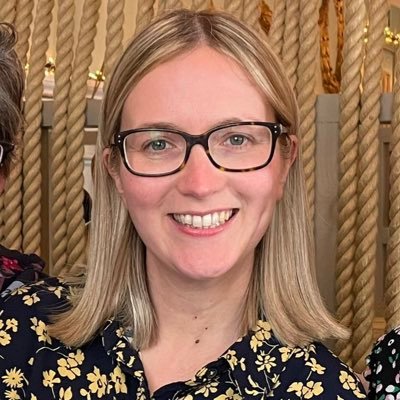Professor Laura Harkness-Brennan

Education Background:
- A-levels (Physics, Maths, English Literature), MPhys Physics, PhD Physics
I always chose subjects I enjoyed doing. At A-level, choosing English literature gave me a nice balance in my day! It was something different to do than my maths and physics. However, as time went on in my A-levels I enjoyed physics more and more.
Who/What inspired you to study/work in STEM
My A-level teacher was brilliant. I didn’t always enjoy physics, I found it difficult when I first studied it but after a few years I started to really enjoy it, and the rest is history.
I am a naturally curious person, I love watching science programmes, especially anything by David Attenborough. I always wanted to be a scientist or engineer.
Current Job/Role:
I am a Professor in the Department of Physics, and Associate Pro Vice Chancellor for Research and Impact for the Faculty of Science and Engineering. I am part of the nuclear physics group and my research ranges from studying the properties of nuclei to developing new technologies for radiation detection in healthcare. I interact a lot with students, either directly through teaching or through supervising research projects. I also get to do my own research and sometimes this involves travelling to exotic places. My most recent trip was to a nuclear structure physics experiment in Japan.
Previous Job/Role:
After my PhD, I spent a year as a postdoctoral researcher, and then moved to work for a radiation detector company. I really enjoyed both of these but returned to academia to develop my own research proposals and teach the next generation of scientists.
What is interesting about what you do:
I really like interacting with lots of different people. Some of my research involves me working with clinicians, engineers, environmental scientists and energy experts. I am currently trying to develop new methods to detect radiation, which can impact in science and society.
Interesting facts about you/your work:
- I am developing new technology that will help discover new properties of exotic nuclei
- One of my research projects could help improve radiotherapy plans in the future
- PhD students I have supervised are now working as physicists in labs and hospitals all over the world.
Resources
- http://www.liv.ac.uk/physics/staff/laura-harkness-brennan/
- Twitter: @LauraHBPhysics
- http://www.liv.ac.uk/physics/research/nuclear-physics/home/